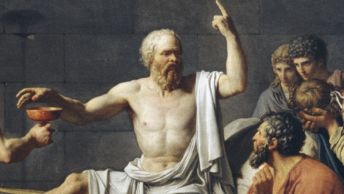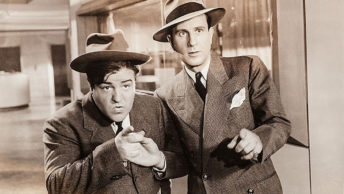During the Middle Ages and Renaissance, jesters were employed by monarchs and noblemen to help them pass the time away. By their use of song, music, storytelling, acrobatics, juggling, jokes, and magic tricks, they assumed the role of poking fun at people or events that were well known to their audiences. In short, their foolishness made others laugh.
According to an online dictionary, the act of foolishness describes one who: (a) fails to display a lack of good sense, judgment, or discretion; (b) engages in the absurd; or (c) focuses upon things that are insignificant or trivial. I don’t know about you, but when I was growing up, I haven’t enough fingers to list the number of times my father pointed out that one of my actions was—foolish! To this day, I can still hear him say: “Kurt, stop and think about what you are doing.”
Now, human foolishness may take two forms: intentional or unintentional. First, we should note that most of us don’t intentionally pursue foolishness unless we’ve traveled down the road of becoming a jester, clown, or comic.
So mostly, our foolishness is unintentional. It manifests itself primarily because we haven’t thought about something as thoroughly as we should have. We haven’t weighed the pros and cons of our actions. In short, we haven’t stopped and reflected upon the question: “Just what is our end goal?”
Since I can remember, I’ve long been a fan of college basketball. And through the years, I’ve marveled at the eloquence of great coaches. While it may be said that all coaches have styles, it may also be said that certain coaches have styles that are memorable. In this latter category, I’d certainly include coaches like: John Wooden (UCLA), Bobby Knight (Indiana), Al McGuire (Marquette), and Dick Vitale (Detroit). As a native Detroiter, I was especially excited to hear that the University of Detroit Mercy had hired Mike Davis to be their next basketball coach. In the college world, Davis has long been known for the “wisdom” he has routinely passed on to his players (as head coach at Indiana, UAB, Texas Southern, and now Detroit). And at his introductory press conference, the 57-year-old Davis just happened to reflect upon the end of things. He spoke of how he had recently challenged his soon-to-be freshman son, Antoine, to shoot 60,000 shots over a two-week period. Through repetition, Davis said that he wanted to teach his son that the end of each shot has a beginning.
In speaking of “Detroit” stories, another is that of Dr. Ben Carson, our current secretary of the U.S. Department of Housing and Urban Development (HUD). If you’ve read Dr. Carson’s biography, you know that he was an inner-city kid who literally went from “class dummy” to become a world-renowned pediatric neurosurgeon at Johns Hopkins University. But to do so, he overcame what many considered as impossible odds: (1) he was reared in an impoverished broken home; (2) he achieved poor grades; (3) he displayed a violent temper; and (4) he suffered from severe low self-esteem. At the center of his life was his mother, Sonya, who was required to perform domestic work to keep her family financially afloat. But Sonya did something even more important: she prayed. Each day, she prayed diligently for wisdom in an effort to help Ben and his older brother succeed in school.
And her prayers resulted in action. She implemented an agenda that: limited the boys’ television viewing; required weekly trips to the Detroit public library; and mandated that they write weekly book reports, even though she could not read them. Ben’s reading spurred a newfound interest in science that came to amaze his classmates.
As Coach Davis noted: every end has a beginning. For Dr. Ben Carson and his brother, his mother joined herself to wisdom, prayer, and Jesus Christ. For her, Jesus was everything: beginning, middle, and end! For her, embracing wisdom and the Lord meant trusting that He would guide her sons so that they might fulfill their life’s purpose while at the same time—glorifying God.
I mention these things because Sacred Scripture always guides us away from foolishness and toward wisdom. In Proverbs (9:1-6), we are told “that Wisdom has built her house, dressed her meat, and mixed her wine. And that she invites us to forsake foolishness so that we might live.” And in his Letter to the Ephesians (5:15-20), St. Paul instructs us that “we should watch carefully how we live, not as foolish persons, but as wise, making the most of every blessed opportunity given us by Almighty God. And in the Gospel of John (6:51-58), we hear Jesus say to the crowds: “I am the living bread that came down from heaven; whoever eats this bread will live forever; and the bread that I will give is my flesh for the life of the world.”
So, if Christ is our end, may we listen to His words and those of the prophets sent before Him. May today be our beginning. With Wisdom at our backs, may we throw off foolishness and reach for Glory!









I think you should make a stronger comment on the effects of “foolishness”. In my experience more people seem to be on their way to hell because they are foolish rather than because they are evil. Many of my Catholic friends and acquaintances have stopped going to mass, they think women have a right to choose, that there is nothing wrong with gay marriage, that one religion is just as good as another. These people are being foolish. Yet the result will likely be the same as if they committed murder. They will not be saved. The road to hell is paved with foolishness.